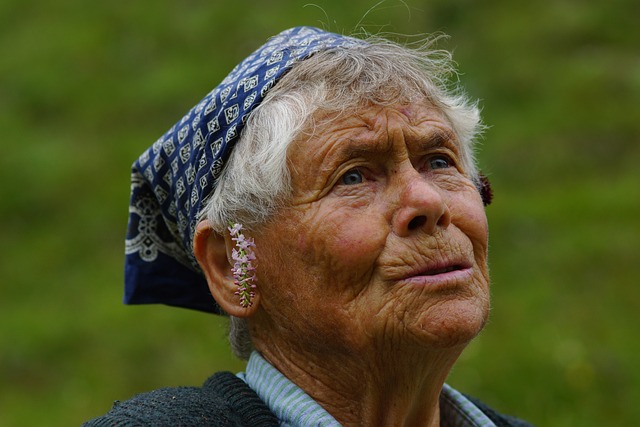Elderly companion services play a crucial role in supporting individuals with dementia by offering tailored companionship and assistance that can significantly improve their quality of life. These services provide consistent presence and engagement to help alleviate feelings of isolation and confusion, which are common with dementia. Trained companions facilitate activities that encourage cognitive stimulation and social interaction while assisting with daily tasks and medication reminders. This dual focus on care and companionship not only benefits the person with dementia but also provides respite for their caregivers. Elderly companion services are designed to be adaptable, evolving to meet the changing needs of individuals as their dementia progresses. They offer a personalized approach that respects individual preferences and routines while fostering an environment that supports overall well-being, including physical, emotional, and social needs. These services are integral for improving caregiver understanding of dementia and aiding in the complexities of dementia care, making them a key element in comprehensive care strategies. They enhance dignity and independence, ensuring that seniors with dementia lead as fulfilling a life as possible.
naviguating the complexities of dementia care often necessitates a multifaceted approach. This article delves into the pivotal role of elderly companion services within dementia support structures, offering a detailed examination of their significance and impact. We explore how these services not only aid individuals with dementia but also provide respite and support for their families. Through a comprehensive overview of available resources and the unique benefits of tailored companion services, this piece underscores the critical nature of these solutions in enhancing the quality of life for those affected by dementia.
- Understanding the Role of Elderly Companion Services in Dementia Care
- Comprehensive Overview of Dementia Support Services for the Elderly
- The Impact of Tailored Elderly Companion Services on Dementia Patients and Their Families
Understanding the Role of Elderly Companion Services in Dementia Care

Elderly companion services play a pivotal role in the lives of individuals with dementia, offering a blend of companionship and support that can significantly enhance their quality of life. These services are tailored to meet the complex needs of seniors living with dementia, providing a consistent presence that helps mitigate feelings of isolation and confusion often associated with the condition. Trained companions not only engage in meaningful activities with clients but also assist with daily tasks, medication reminders, and offer a level of comfort that allows individuals to maintain their independence for as long as possible. This attentive support not only benefits the person with dementia but also provides respite for caregivers, who can take comfort in knowing their loved ones are in capable hands. The role of these services extends beyond the immediate care, as they often facilitate a better understanding of the disease among family members and help navigate the challenges of dementia care, thereby acting as a critical component of a holistic care approach.
Moreover, elderly companion services are designed to be adaptable, catering to the evolving needs of individuals as their dementia progresses. They offer a personalized touch, ensuring that the care provided remains aligned with the client’s preferences, routines, and history. This individualized attention can lead to better outcomes for people with dementia, as it fosters an environment where they feel valued, understood, and respected. In doing so, these services not only contribute to the physical well-being of seniors but also support their emotional and social needs, which are paramount in managing the symptoms of dementia effectively.
Comprehensive Overview of Dementia Support Services for the Elderly

The elderly facing dementia have a range of support services tailored to their unique needs, ensuring they maintain as much independence and quality of life as possible. Companion services are a cornerstone of this support network, offering social interaction and emotional support to those who may feel isolated or overwhelmed by the condition. These services can be structured, such as group activities facilitated by trained professionals, or more informal, like regular visits from a dedicated companion. The goal is to provide meaningful engagement and companionship that can alleviate feelings of loneliness and confusion, often accompanying the onset of dementia. Additionally, these services are designed to be adaptable, aligning with the individual’s preferences, capabilities, and the progression of their condition.
Beyond companion services, comprehensive support for the elderly with dementia encompasses a multifaceted approach. This includes memory care assistance, personalized care planning, and specialized health monitoring. Cognitive stimulation activities are often incorporated to help maintain mental acuity and slow cognitive decline. Furthermore, these services ensure that caregivers receive the necessary training and support to effectively assist their charges, offering respite care when needed. Coordination with healthcare providers ensures a holistic approach to managing dementia, addressing both the physical and psychological aspects of the disease. These tailored support services are pivotal in empowering the elderly with dementia to live fulfilling lives, maintaining dignity and promoting well-being.
The Impact of Tailored Elderly Companion Services on Dementia Patients and Their Families

Elderly companion services play a pivotal role in the lives of individuals with dementia, offering tailored support that addresses both the medical and emotional aspects of the condition. These services are designed to provide companionship, which can alleviate feelings of loneliness and isolation often experienced by those with dementia. By engaging in activities that stimulate cognition and maintain social connections, these companion services help preserve the dignity and independence of the patient. For families, this respite from the 24/7 demands of caregiving can be a lifeline, allowing them to manage personal responsibilities, seek respite, and maintain their own well-being. The consistent presence of a trained companion also serves as an additional set of eyes and ears for the family, providing peace of mind through regular updates on the patient’s condition and any changes in behavior or health status, which is crucial for timely medical intervention. Moreover, these services can be tailored to evolve alongside the progression of the disease, ensuring that the care remains appropriate and effective throughout the various stages of dementia. The impact of such personalized support is multifaceted; it not only enhances the quality of life for the patient but also provides vital assistance to families navigating the complexities of caring for a loved one with dementia.
In conclusion, dementia care is a multifaceted endeavor that significantly benefits from the integration of elderly companion services. These services not only offer personalized support tailored to the needs of individuals with dementia but also provide respite and reassurance to their families. The comprehensive array of support services available for the elderly with dementia is instrumental in enhancing their quality of life, maintaining their independence, and slowing the progression of the condition. As we continue to understand and advocate for these essential care options, it is clear that elderly companion services play a pivotal role in the overall well-being of those affected by dementia. Embracing these services can lead to more dignified and comfortable living conditions for seniors, ensuring they receive the compassionate care and companionship needed during this challenging time.




